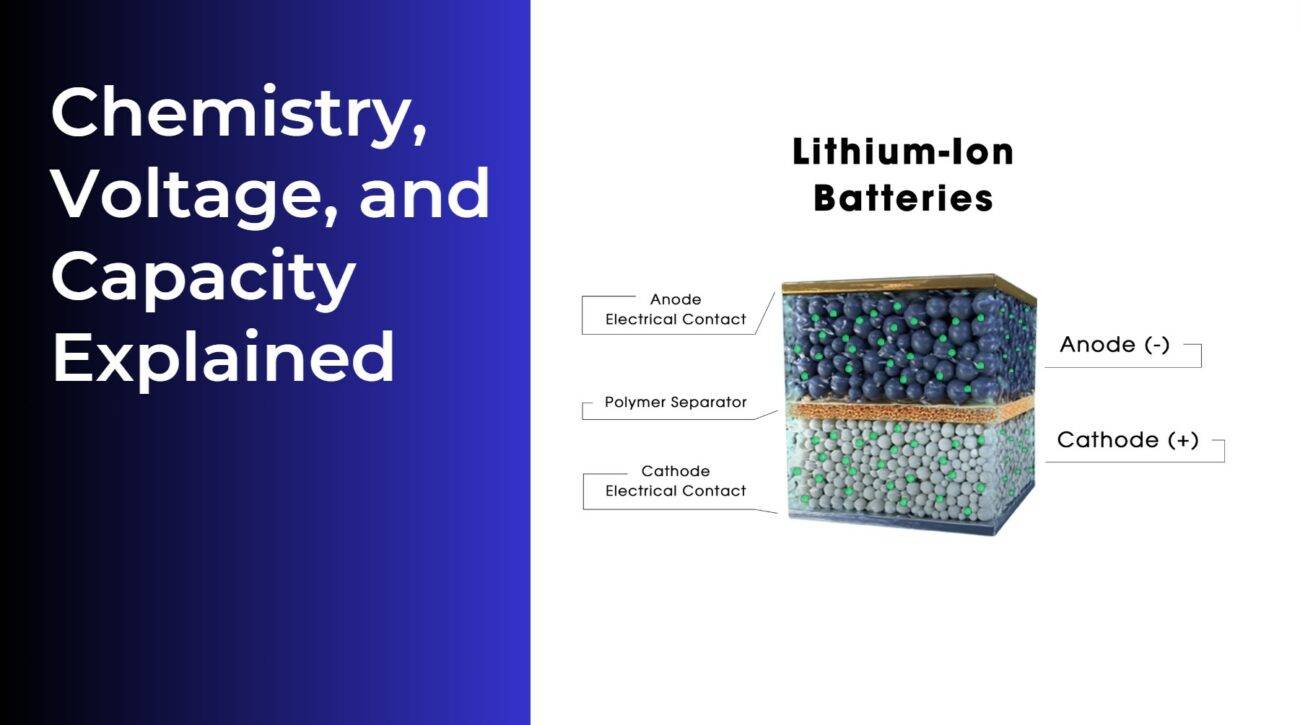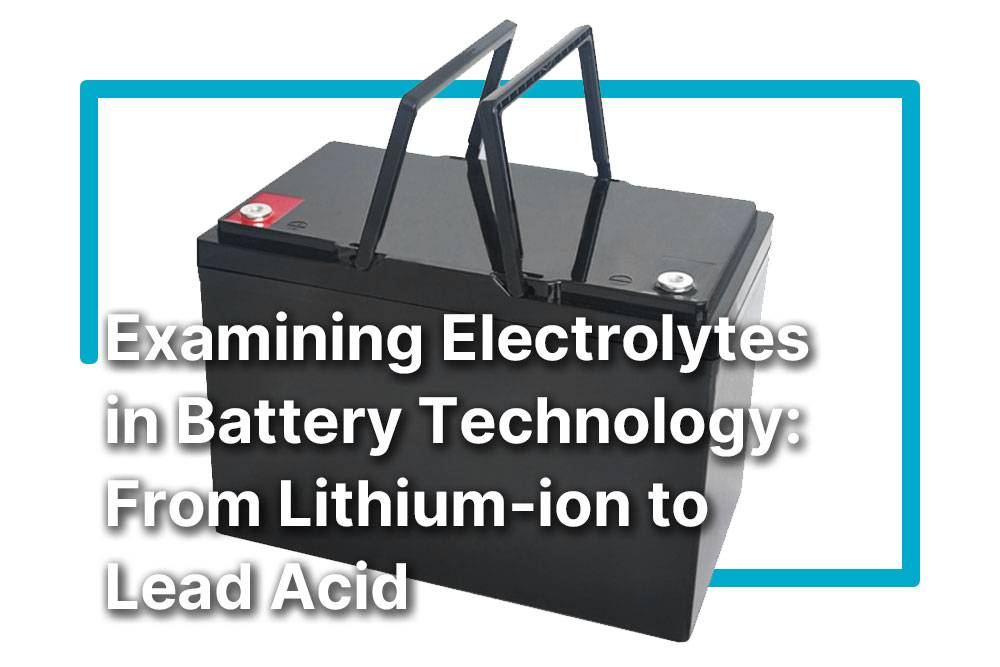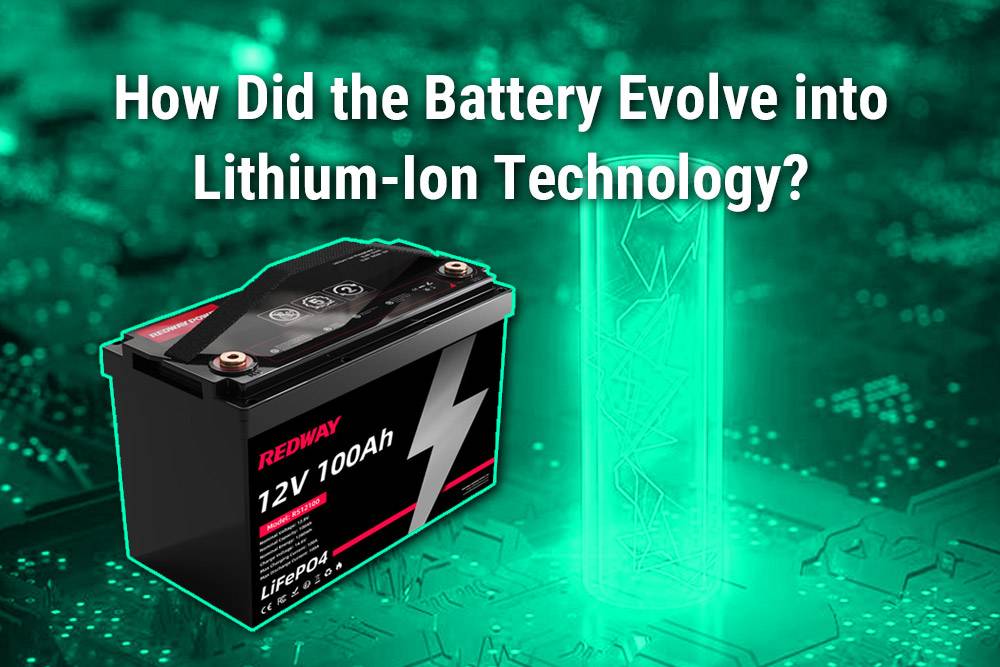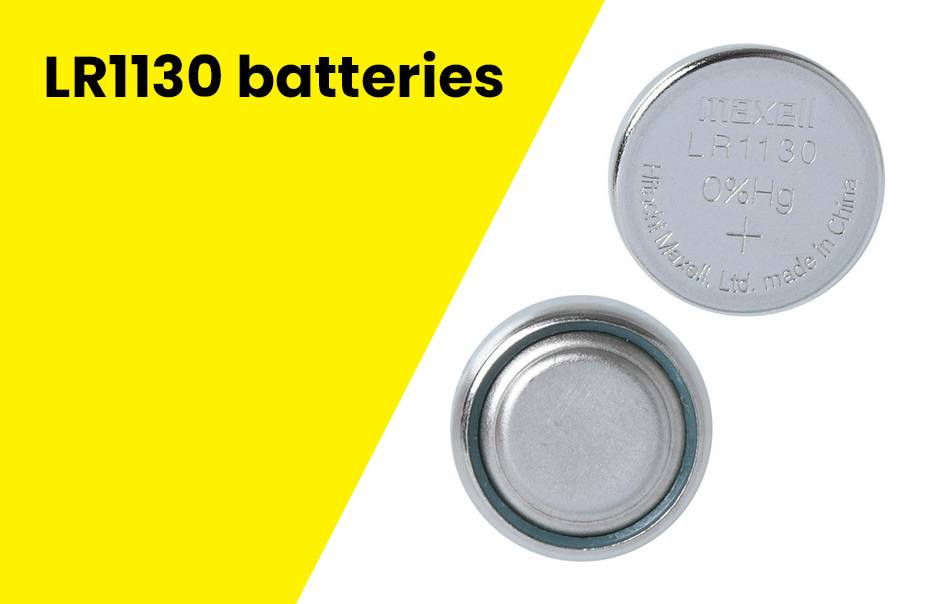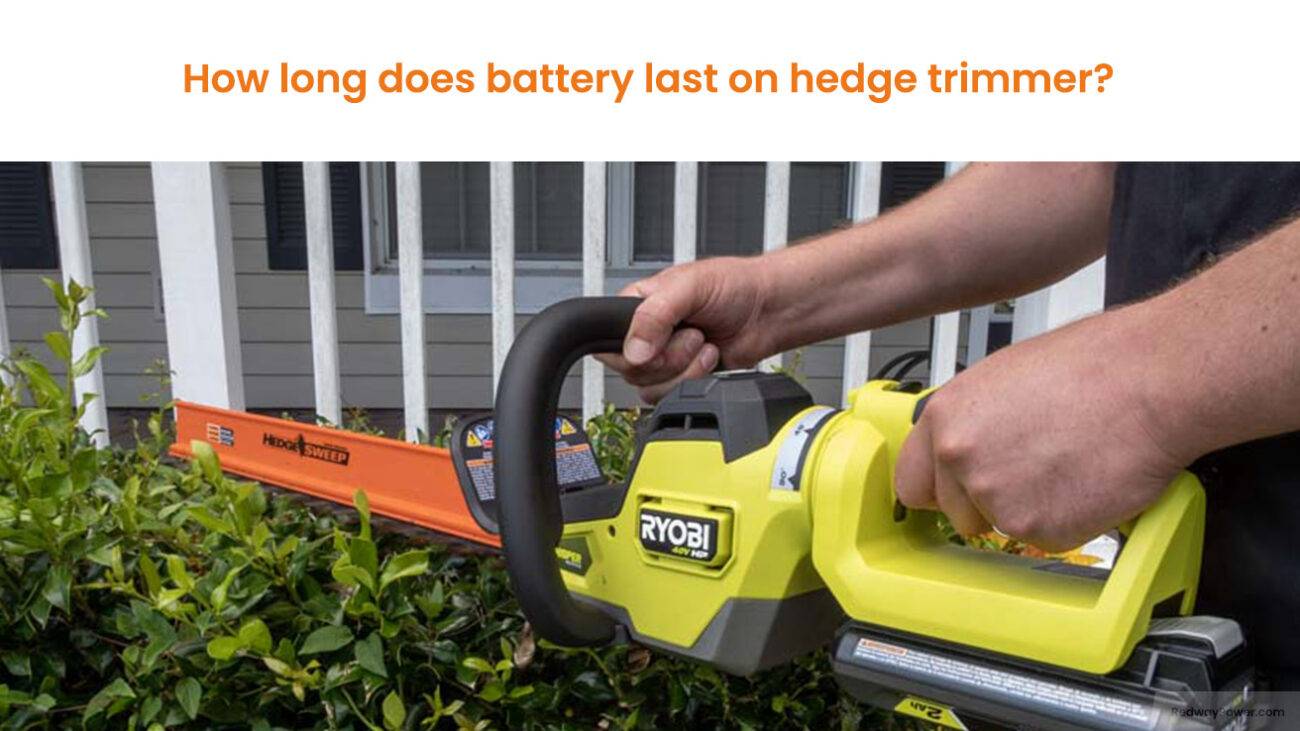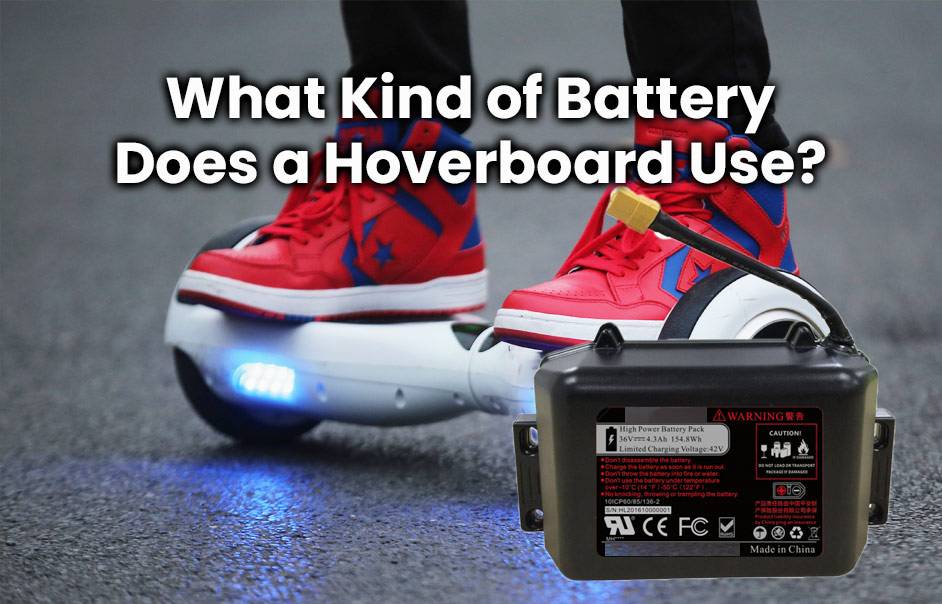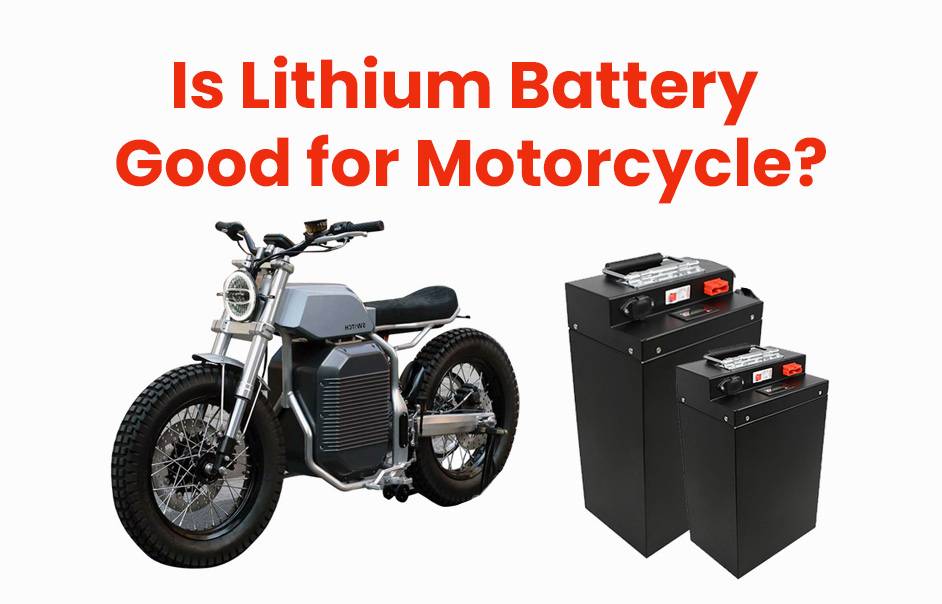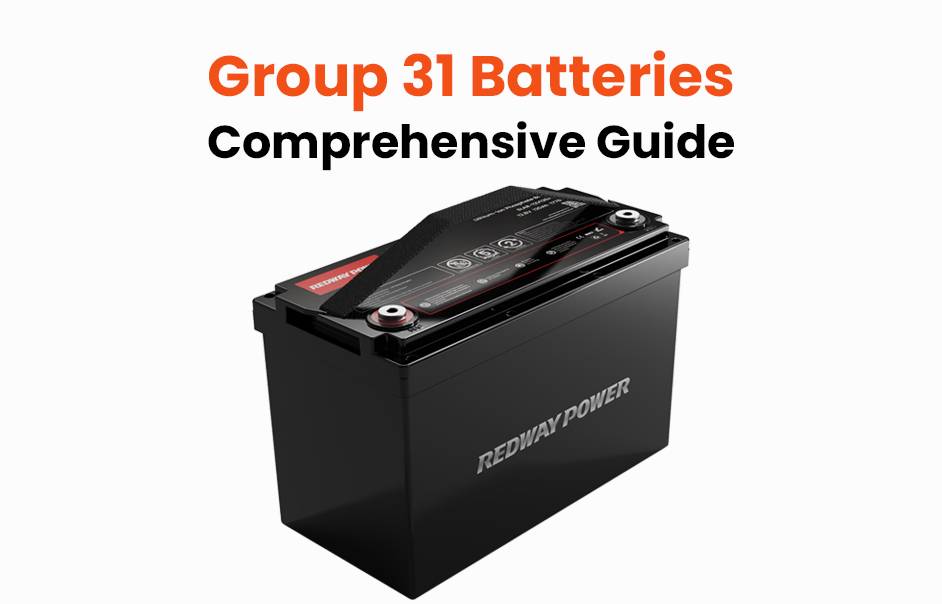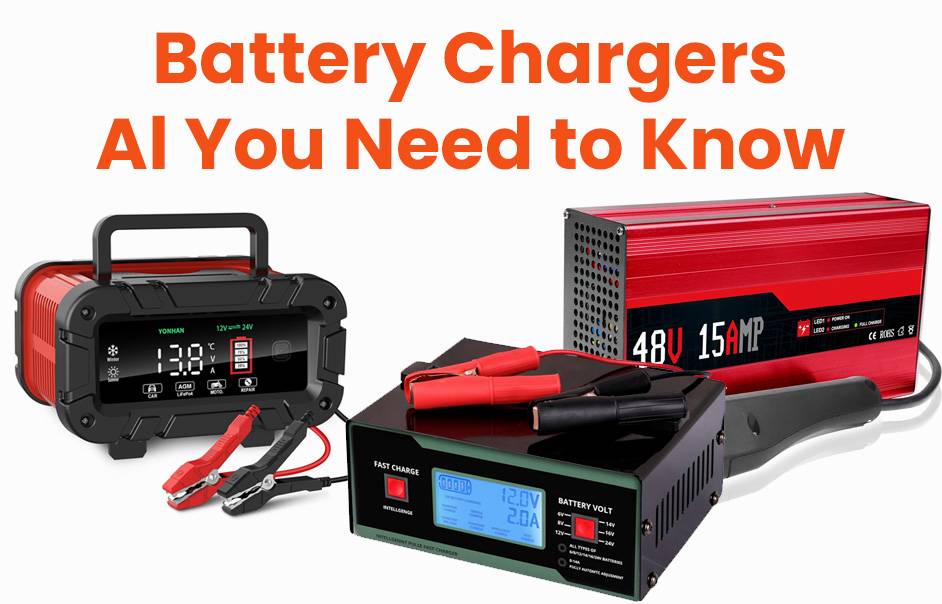- Rack-mounted Lithium Battery
- Golf Cart Lithium Battery
-
Golf Cart Lithium Battery
- 36V 50Ah (for Golf Carts)
- 36V 80Ah (for Golf Carts)
- 36V 100Ah (for Golf Carts)
- 48V 50Ah (for Golf Carts)
- 48V 100Ah (Discharge 100A for Golf Carts)
- 48V 100Ah (Discharge 150A for Golf Carts)
- 48V 100Ah (Discharge 200A for Golf Carts)
- 48V 120Ah (for Golf Carts)
- 48V 150Ah (for Golf Carts)
- 48V 160Ah (Discharge 100A for Golf Carts)
- 48V 160Ah (Discharge 160A for Golf Carts)
-
Golf Cart Lithium Battery
- Forklift Lithium Battery
- 12V Lithium Battery
- 24V Lithium Battery
- 36V Lithium Battery
- 48V Lithium Battery
-
48V LiFePO4 Battery
- 48V 50Ah
- 48V 50Ah (for Golf Carts)
- 48V 60Ah (8D)
- 48V 100Ah (8D)
- 48V 100Ah
- 48V 100Ah (Discharge 100A for Golf Carts)
- 48V 100Ah (Discharge 150A for Golf Carts)
- 48V 100Ah (Discharge 200A for Golf Carts)
- 48V 150Ah (for Golf Carts)
- 48V 160Ah (Discharge 100A for Golf Carts)
- 48V 160Ah (Discharge 160A for Golf Carts)
-
48V LiFePO4 Battery
- 60V Lithium Battery
-
60V LiFePO4 Battery
- 60V 20Ah
- 60V 30Ah
- 60V 50Ah
- 60V 50Ah (Small Size / Side Terminal)
- 60V 100Ah (for Electric Motocycle, Electric Scooter, LSV, AGV)
- 60V 100Ah (for Forklift, AGV, Electric Scooter, Sweeper)
- 60V 150Ah (E-Motocycle / E-Scooter / E-Tricycle / Tour LSV)
- 60V 200Ah (for Forklift, AGV, Electric Scooter, Sweeper)
-
60V LiFePO4 Battery
- 72V~96V Lithium Battery
- E-Bike Battery
- All-in-One Home-ESS
- Wall-mount Battery ESS
-
Home-ESS Lithium Battery PowerWall
- 24V 100Ah 2.4kWh PW24100-S PowerWall
- 48V 50Ah 2.4kWh PW4850-S PowerWall
- 48V 50Ah 2.56kWh PW5150-S PowerWall
- 48V 100Ah 5.12kWh PW51100-F PowerWall (IP65)
- 48V 100Ah 5.12kWh PW51100-S PowerWall
- 48V 100Ah 5.12kWh PW51100-H PowerWall
- 48V 200Ah 10kWh PW51200-H PowerWall
- 48V 300Ah 15kWh PW51300-H PowerWall
PowerWall 51.2V 100Ah LiFePO4 Lithium Battery
Highly popular in Asia and Eastern Europe.
CE Certification | Home-ESS -
Home-ESS Lithium Battery PowerWall
- Portable Power Stations
Lithium Polymer Battery In-depth Understanding
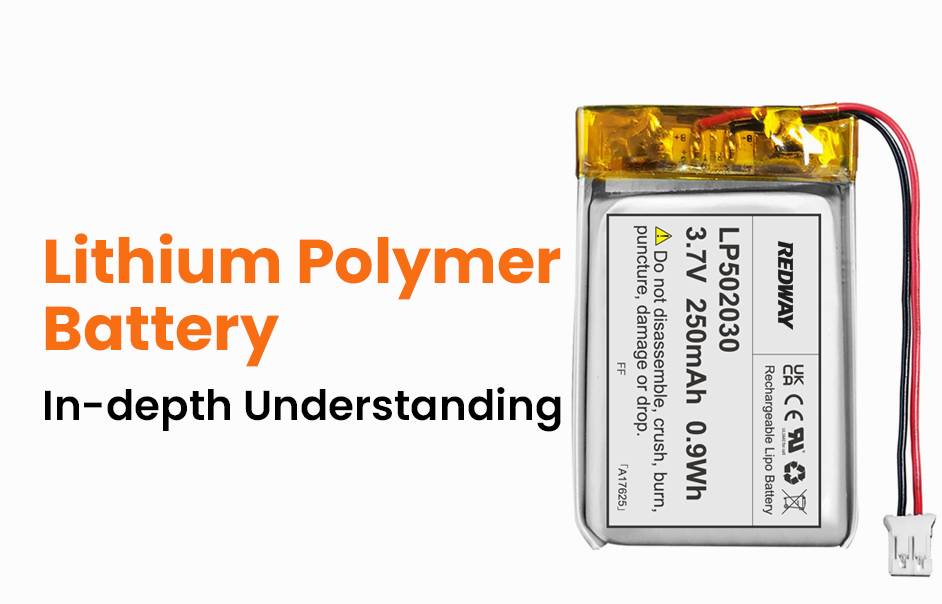
Welcome to the dynamic realm of lithium polymer batteries! In our tech-driven era, where devices are extensions of ourselves, a reliable energy source is paramount. Meet the lithium polymer battery – a compact powerhouse reshaping how we stay connected and productive. This blog post delves deep, covering the advantages, disadvantages, common applications, and maintenance tips. Join us on an insightful journey into the sleek world of lithium polymer batteries!
What is a Lithium Polymer Battery?
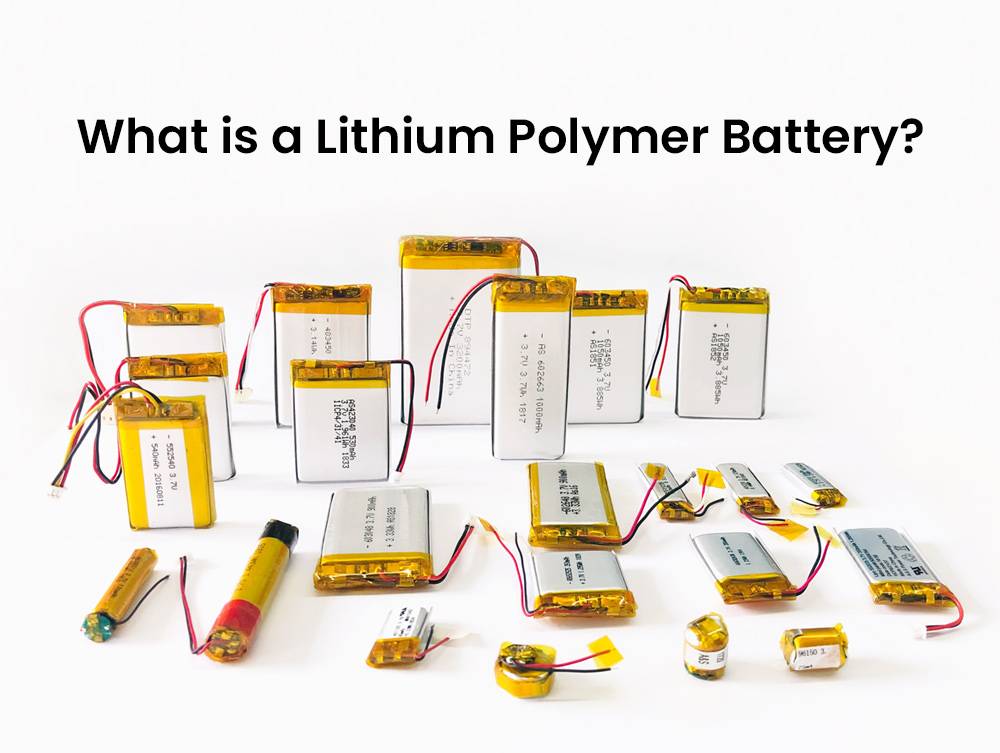
Welcome to the world of lithium polymer batteries – compact powerhouses redefining energy storage!
Advantages:
- Impressive Energy Density: Stores more power in less space, perfect for portable devices.
- Lightweight Nature: Ideal for weight-sensitive applications.
- Low Self-Discharge: Retains charge over extended periods.
Limitation:
- Sensitive to Temperature: Extreme heat or cold can affect performance and lifespan.
While LiPo batteries offer great power, proper handling is crucial to avoid hazards. Now, let’s explore their advantages in detail!
The Advantages of Lithium Polymer Batteries
Welcome to the world of lithium polymer batteries, where innovation meets efficiency! These batteries, commonly known as LiPo batteries, come with a host of advantages that cater to the needs of modern industries.
Advantages:
- High Energy Density: Stores more power in a smaller, lighter package, perfect for portable devices.
- Flexible Shape and Design: Allows for innovative and sleek product designs, adapting to specific device requirements.
- Low Self-Discharge Rate: Maintains charge over extended periods, ideal for sporadically used devices.
- High Discharge Rate: Delivers quick bursts of power, suitable for high-performance applications like drones and electric vehicles.
- Improved Thermal Stability: Gel-like electrolytes enhance safety, reducing the risk of leakage or explosion.
These advantages position lithium polymer batteries as a top choice across diverse industries, from consumer electronics to aerospace. Now, let’s explore these benefits in more detail!
The Disadvantages of Lithium Polymer Batteries
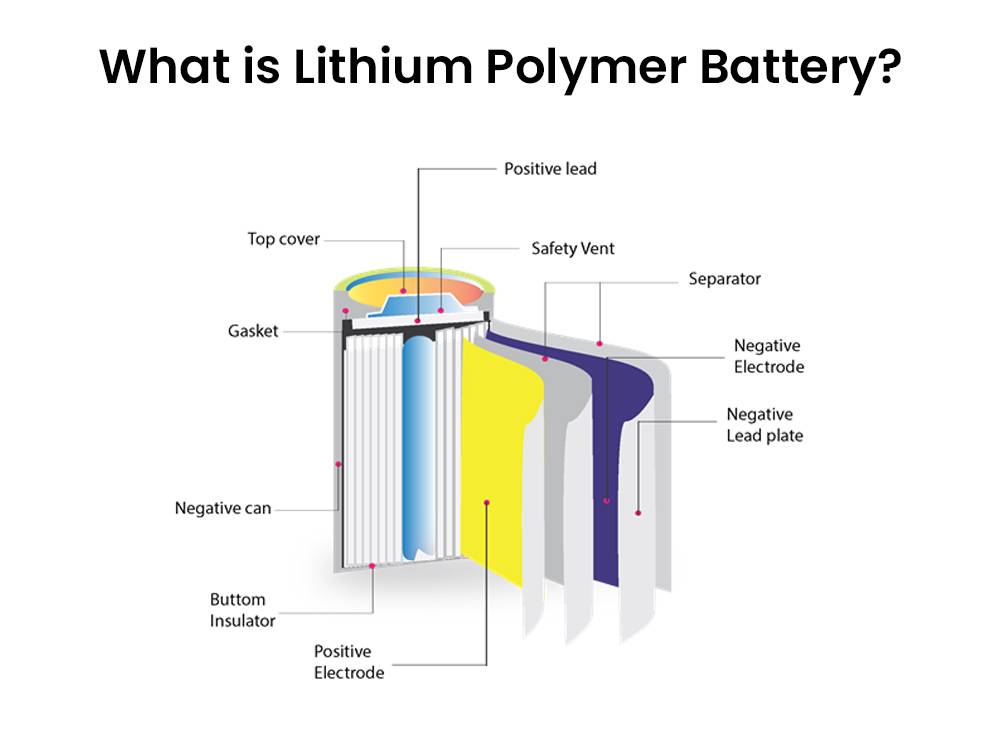
- Temperature Sensitivity: LiPo batteries are sensitive to high temperatures, leading to faster deterioration and potential overheating, causing thermal runaway.
- Lower Energy Density: Compared to some battery types, LiPo batteries have relatively lower energy density, resulting in shorter single-charge durations and the need for more frequent recharging.
- Limited Lifespan: LiPo batteries typically endure around 300-500 charge cycles before experiencing diminished capacity, impacting their overall lifespan.
- Non-Standardized Sizes: Unlike traditional cylindrical lithium-ion batteries, LiPo batteries lack standardized sizes, posing challenges for replacement or upgrades without custom manufacturing.
- Higher Manufacturing Cost: Despite technological advancements, the manufacturing and purchasing costs of lithium polymer batteries remain higher than alternatives like nickel-cadmium or nickel-metal hydride.
While these disadvantages are considerations, the widespread use of lithium polymer batteries persists due to their unique advantages and adaptability. Ongoing technological advancements are expected to address and improve these limitations in the future.
Common Applications of Lithium Polymer Batteries
Embark on a journey through the widespread applications of lithium polymer batteries (LiPo). These compact powerhouses have gained immense popularity for their versatility, catering to the diverse needs of modern technology.
- Portable Electronics: LiPo batteries are the go-to choice for portable consumer electronics. Their high energy density ensures extended power for laptops, cameras, and gaming consoles, fitting seamlessly into sleek and slim device designs.
- Electric Vehicles (EVs): Addressing the demand for sustainable transportation, LiPo batteries play a crucial role in EVs. Their ability to store large amounts of energy provides these vehicles with extended driving ranges, surpassing traditional battery options.
- Aerospace Industry: In the aerospace sector, LiPo batteries shine with their lightweight nature. Powering navigation systems and serving as emergency backup systems on planes, they contribute significantly to fuel efficiency and overall operational smoothness.
- Medical Devices: LiPo battery technology is a cornerstone in the medical field, especially for implantable devices like pacemakers. Ensuring reliability and stability, these batteries offer extended lifespans while safely integrating into the human body.
In conclusion, LiPo batteries have become indispensable across various industries, delivering exceptional performance with their small size, light weight, and high energy density.
Tips for Properly Using and Maintaining Lithium Polymer Batteries
Properly using and maintaining lithium polymer batteries is crucial for their longevity and optimal performance. Here are essential tips to get the most out of your batteries:
- Use the Right Charger: Always use a charger designed for lithium polymer batteries to prevent overcharging or undercharging, which can damage the battery.
- Follow Manufacturer Specifications: Adhere to recommended charging voltage and current specified by the manufacturer to avoid overheating and potential hazards.
- Control Temperature Exposure: Operate and store batteries within the temperature range specified by the manufacturer to prevent degradation and capacity reduction.
- Avoid Full Discharge: Refrain from fully discharging lithium polymer batteries, as this may cause irreversible damage. Follow manufacturer guidelines for optimal usage.
- Handle with Care: Avoid physical stress like dropping or crushing, as it can damage the internal structure and impact overall performance.
- Store in Ideal Conditions: Store batteries in a cool, dry place away from direct sunlight and high humidity. Avoid prolonged storage at full charge to prevent self-discharge over time.
Following these usage and maintenance tips ensures your lithium polymer batteries last longer, providing consistent power for all your devices!
How to Choose the Right Lithium Polymer Battery for Your Device
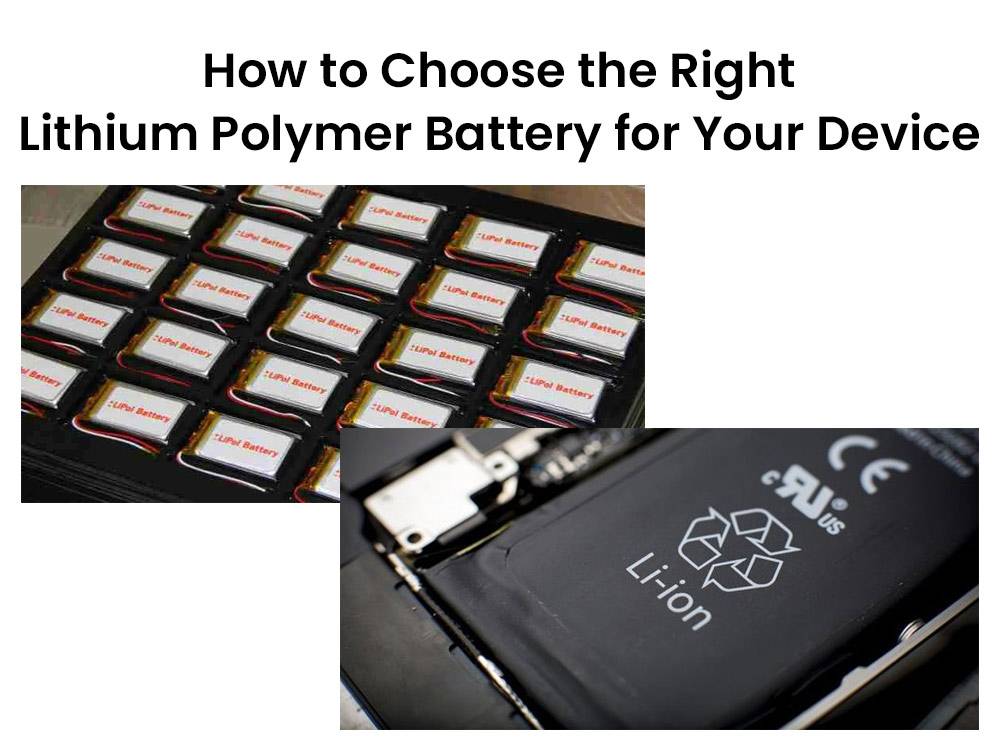
Choosing the right lithium polymer battery involves considering key factors for optimal performance and safety:
- Capacity Matters: Check the battery capacity measured in milliamp hours (mAh). Select a battery with sufficient capacity to meet your device’s power requirements.
- Voltage Compatibility: Ensure the battery voltage matches your device’s specifications. Different devices require different voltage levels for proper operation.
- Discharge Rate Consideration: Pay attention to the battery’s discharge rate. Opt for a higher discharge rate if your device requires increased power output.
- **Size and Weight: Choose a battery size and shape that fits your device comfortably without adding unnecessary bulk or weight.
- Prioritize Safety Features: Look for safety features like overcharge protection and thermal cutoff mechanisms to prevent potential hazards such as overheating.
- Research Reputable Manufacturers: Investigate manufacturers with a proven track record of producing high-quality lithium polymer batteries. Check customer reviews for reliability and performance feedback.
By carefully considering these factors, you can select a lithium polymer battery that ensures optimal performance, longevity, and safety for your device!
Future Developments and Innovations in Lithium Polymer Battery Technology
Lithium polymer batteries are poised for exciting advancements, with ongoing research focusing on key areas:
- Enhanced Energy Density: Researchers aim to increase energy density for longer-lasting power without adding bulk.
- Rapid Charging Capabilities: Innovations in charging speeds may enable quick recharges, reducing waiting times significantly.
- Advanced Safety Measures: Ongoing efforts to enhance stability and reliability aim to minimize risks of overheating or explosions.
- Environmentally-Friendly Solutions: Exploration of alternatives to materials like cobalt for more sustainable and eco-friendly battery options.
- Wireless Charging Technology: The development of wireless charging methods offers efficient and convenient power delivery.
- Integration of Smart Features: Future lithium polymer batteries may include built-in sensors for real-time monitoring of temperature and voltage, ensuring optimal performance and safety.
The upcoming developments in lithium polymer battery technology are set to revolutionize industries, offering greater energy density, faster charging, improved safety, sustainability, wireless capabilities, and intelligent functionalities. Stay tuned for a more powerful, efficient, and eco-friendly future of portable energy storage!














